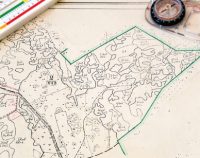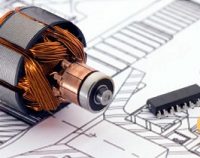Pennsylvania-Land Surveyors Package: 24 PDH
$144.00 Original price was: $144.00.$80.00Current price is: $80.00.
Land Surveyor’s Ethics: 2 PDH
In this ethics course the student will understand the standards of professional behavior for adherence to the highest ethical conduct and revisit the emphasis that the holder of a professional license has a direct and vital impact on the safety, health, and welfare of the public.
Public Land Survey Rectangular System: 8 PDH
In this course the student will review the rectangular surveying system which has been used continuously in the United States since 1785. As all facets of this system occasionally come into use, the student will become well versed in the field procedures of conducting an original survey covering both historical and current methods.
Aerial Photogrammetry: 5 PDH
In this course the student will understand procedural guidance, technical specifications, and quality control (QC) criteria for performing aerial photogrammetric mapping activities.
Introduction to Small Unmanned Aircraft Systems (sUAS) for Land Surveyors: 4 PDH
This course is an introduction of using sUAS in land surveying. From FAA licensing requirements to common sUAS products and software, with an understanding of these basics a land surveyor can easily get started in using this up and coming technology.
Airborne Topographic LiDAR: 3 PDH
In this course the student will review the principles of Airborne Topographic LiDAR and learn how to utilize methods to employ this technology in the field.
Corner Restoration Fundamentals: 2 PDH
In this course the student will understand the understand federal guidelines of resurveying corner monuments and the procedures and laws to successfully reestablish these boundaries.
Preview Course: Land Surveyor’s Ethics
Preview Course: Public Land Survey: Rectangular System
Preview Course: Aerial Photogrammetry
Preview Course: Introduction to Small Unmanned Aircraft Systems (sUAS) for Land Surveyors
Preview Course: Airborne Topographic LiDAR
Preview Course: Corner Restoration Fundamentals
Related Courses
Florida-Mechanical Engineering Package #2 w/AFBC: 19 PDH
$140.00Original price was: $140.00.$90.00Current price is: $90.00. Add to cartFlorida Approved Provider: 0006346Four Mechanical Engineering courses plus Florida Laws & Rules, Florida Ethics and Advanced Florida Building Code Course that will earn 19 CEH(PDH) guaranteed to be accepted by the Florida Board of Professional Engineers. Instructor: Seth Grablow, PEFlorida Laws & Rules for Professional Engineers: 1 CEH
- Florida Approved Course #0010038
- Approved Course for February 28, 2027 Renewal Deadline
- This course satisfies the one (1) hour laws and rules requirement
In this course the student will study the Florida Board of Professional Engineers Laws and Rules, including Professional Engineering Ethics. This course consists of four sections, 1) Florida Rules: Rules adopted, amended, or repealed during the immediate preceding biennium, 2) Florida Statutes: Changes to Chapter 455, 3) Florida Statutes: Changes to Chapter 471, and 4) Disciplinary Cases Review.Florida Ethics for Professional Engineers: 1 CEH
- Florida Approved Course #0010039
- Approved Course for February 28, 2027 Renewal Deadline
- This course satisfies the one (1) hour ethics requirement
The primary objective of this course is to familiarize the student with the standards of professional behavior for adherence to the highest principles of ethical conduct as well as apply those principles in reviewing real case studies.2023 Florida Advanced Building Code: Building – Significant Changes: 1 CEH
- Florida Building Commission Approved Course #1222
- This course satisfies retention of the “Special Qualifications” designation on your licensure record, pursuant to Section 471.0195, Florida Statutes.
This one (1) hour course covers and highlights some of the significant changes and updates in the 2023 8th Edition Florida Building Code: Building (FBC-B) which was recently updated from the 2020 FBC 7th Edition Florida Building Code: Building.Accident and Operational Safety Analysis: 4 PDH
In this course the student will understand the fundamental concepts of accident dynamics, accident prevention, and accident analysis. The student will learn the theoretical bases of safety management and accident analysis, and the practical application of a Safety Management framework for an organization.
Fire Protection Systems: 3 PDH
In this course the student will understand fire protection systems and fire protection system operations and will be able to familiarize themselves with the various systems and components including operations and maintenance/ inspection procedures.
Improving Motor and Drive System Performance: 5 PDH
This course provides a thorough overview of motor and drive systems and their components and presents various methods and opportunities to enhance performance and increase efficiency.
Principles of Hydraulic and Pneumatic Systems: 4 PDH
In this course the student will understand the basics of hydraulics and pneumatics systems, hydraulics and pneumatics system components, and the operation and maintenance of these systems.
Preview Course: Florida Laws and Rules
Preview Course: Florida Ethics
Preview Course: 2023 Florida Advanced Building Code
Preview Course: Accident and Operational Safety Analysis
Preview Course: Fire Protection Systems
Preview Course: Improving Motor and Drive System Performance
Preview Course: Principles of Hydraulic and Pneumatic SystemsNevada-Electrical Engineering Package: 30 PDH
$180.00Original price was: $180.00.$90.00Current price is: $90.00. Add to cartSix Electrical Engineering courses plus Nevada Ethics and Statutes & Codes course that will earn 30 PDH guaranteed to be accepted by the Nevada Board of Licensure of Professional Engineers and Professional Land Surveyors.Instructor: Juan Pesante, PENevada – Ethics including NV Laws and Rules for Professional Engineers: 4 PDH
This course satisfies the Nevada continuing education requirement of two (2) professional development hours in professional ethics and one (1) professional development hour in provisions of NAC 625 & NRS 625, (ref. Nevada Administrative Code 625.40)In this course the student will study two ethics courses including the Nevada State Board of Professional Engineers and Land Surveyors Statutes and Codes. A total of thirty (30) questions will test his or her understanding of the subject.Compressed Air Energy Storage and Pumped Storage Hydropower Concepts: 4 PDH
In this course the student will understand understand current Compressed Air Energy Storage (CAES) and Pumped Storage Hydropower (PSH) technologies and explore future advances of this technology by examining the feasibility of a variety of different concepts.
Energy Storage Technology Cost and Performance: 4 PDH
In this course the student will understand a variety of different energy storage technologies and explore their advantages and disadvantages with an in-depth cost and performance comparison. This course follows the report: Energy Storage Technology and Cost Characterization Report, published by the U.S. Department of Energy (DOE).
Electrical Storage Guide for Electrical Engineers: 5 PDH
This course provides a thorough overview of current electrical storage technologies including batteries, flywheels, compressed air energy storage (CAES), and pumped storage hydropower (PSH) and is a how-to guide for engineers to aid in the selection, procurement, installation, and/or operation of stationary energy storage systems in today’s electric grid.
Electrification-Power System Evolution and Infrastructure Development: 5 PDH
In this course the student will understand Electrification, the shift from non-electric to electric sources of energy at the point of final consumption, and an analysis of the potential impacts of widespread electrification on the evolution of the U.S. electricity system. This course follows the guide: Electrification Futures Study: Scenarios of Power System Evolution and Infrastructure Development for the United States, published by the National Renewable Energy Laboratory.
Best Practices for O&M of Photovoltaic and Energy Storage Systems: 5 PDH
In this course the student will understand how to reduce the cost and improve the effectiveness of operations and maintenance (O&M) for photovoltaic (PV) systems and combined PV and energy storage systems. The course follows the guide: Best Practices for O&M of Photovoltaic and Energy Storage Systems 3rd edition, published by the National Renewable Energy Laboratory.
Analysis of National Charging infrastructure for Electric Vehicles: 3 PDH
This courses addresses the fundamental question of how much plug-in electric vehicle (PEV) charging infrastructure is needed in the United States to support both plug-in hybrid electric vehicles (PHEVs) and battery electric vehicles (BEVs). In this course the student will understand PEV charging infrastructure requirements and analyze a range of plausible scenarios that consider the relationship between the evolution of the PEV fleet and charging infrastructure.
Preview Course: Nevada Ethics, Statutes & Codes
Preview Course: CAES and PSH Concepts
Preview Course: Energy Storage Technology Cost and Performance
Preview Course: Electrical Storage Guide for Electrical Engineers
Preview Course: Electrification-Power System Evolution and Infrastructure Development
Preview Course: Best Practices for O&M of Photovoltaic and Energy Storage Systems
Preview Course: Analysis of National Charging infrastructure for Electric Vehicles




